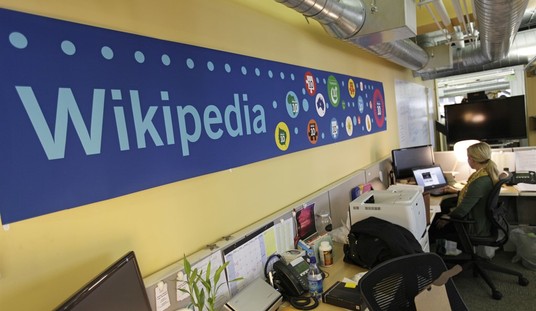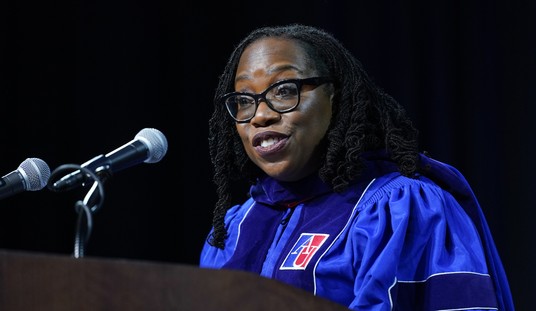I understand wanting to hit back at such a nasty book but there’s a reason why celebrities rarely sue tabloids.
“Random House is at the top of the food chain and published a book based upon acknowledged unsubstantiated gossip,” the source said. “The revealing email is key as evidence of this defamatory approach to politics through proxies.”…
Palin’s attorney continues, writing it is “malicious” for Crown to publish the book when they have proof McGinniss and Crown “were fully aware the statements in the book were false, intended to be false, and were intended to harm.”
“The final work that was published contains most of the stories that Mr. McGinniss complains were nothing more than ‘tawdry gossip’ that amounted to the wishful fantasies of disturbed individuals,” Tiemessen writes. “Since both your company, and the author, clearly knew the statements were false, admitted they had no basis in fact or reality, but decided to publish in order to harm Governor Palin’s family, you and Mr. McGinniss have defamed the Palins.”
Tiemessen ends the letter by warning the publishing house not to “delete e mails or destroy records” that may be used in the suit.
Big Government has a copy of the letter. Note the passage at the end suggesting that McGinniss might have inadvertently waived the attorney-client privilege with Random House’s lawyers by alluding in a conversation with a third party to advice they had given him.
If you haven’t already, you need to read two of Andrew Breitbart’s posts from last week to understand the basis of the claim. The first revealed an e-mail McGinniss had sent to an anti-Palin blogger back in January of this year listing six different gossipy allegations about the Palins and acknowledging that “[n]o one has ever provided factual evidence” that they were true. (McGinniss later confirmed that the e-mail is authentic.) The second was Breitbart’s attempt to cross-check those six gossipy claims against McGinniss’s book and show that not only did five of them make it into the final draft, but virtually all of the info McGinniss relied on to support those claims was obtained before January 2011 — which would mean that he still doubted their veracity after his research was more or less complete. Why is all that important? Because: It’s very hard for someone as famous as Palin to prove defamation under the First Amendment. Reporting that’s merely sloppy or negligent in its handling of the facts isn’t enough to create legal liability; if you’re a “public figure,” you need to show “actual malice,” i.e. that the reporter either knew that his report was false or that he published his report with reckless disregard as to whether it was false or not. Hence the importance of the e-mail that Breitbart posted: It’s potential evidence that McGinniss knew he was pushing nonsense and did it anyway.
McGinniss, of course, says there’s less here than meets the eye:
My email to Jesse Griffin was an effort to secure Alaskan help in obtaining further corroboration of allegations about Sarah Palin that came to my attention during my research. My reporting continued beyond the date of the email, and only information that checked out to my satisfaction and that of my publisher was included in the book. Ultimately, I published only those allegations which I found to be credible. Other allegations that could not be sufficiently verified, including some of those referenced in my email, are not in my book.
That’s what the trial would be about, then, if it got that far — how much of what made it into the book was based on stuff McGinniss discovered after that e-mail was sent? It’s possible that he corroborated all five allegations with solid evidence after January 2011, but that would be quite an investigative windfall in a short span of time after having dug for months in 2010 and found nothing. In fact, McGinniss told Dave Weigel a few weeks ago that he excluded 90 percent of the gossip he heard about the Palins from the book because he couldn’t confirm it. Sounds like the allegations in the e-mail were in that group — until suddenly they weren’t. How come?
Another question. Even if she might have a case — and “might” is really the most hopeful estimate given the high bar you need to clear to prove defamation — is it worth pursuing this? I understand the visceral pleasure of punishing a guy who went on a fishing expedition for smears, and there’s value in casting doubt on the book’s claims by threatening a suit even if you don’t follow through. But here’s the thing: The book’s a bust thus far, both financially and critically. Not only did the Times pan it, even Keith Olbermann felt obliged to defend Palin on it. A court battle would kick up free publicity for Random House (“read the book that’s making Sarah Palin sweat!” or whatever) and attract curiosity-seekers, which is precisely why celebs tend to ignore tabloid stories about them rather than sue. And there’s another risk. If she sued and Random House won on grounds that the book’s claims, while false, were the product of merely negligent reporting rather than actual malice, the headlines the next day would read, “Random House wins Palin suit,” etc. Anyone who glanced at those headlines without reading the story might deduce that Palin had lost because the claims had been proved true, not because they were false but had merely failed to rise to the constitutional level of liability for falsehoods. Maybe she’s simply looking for an apology from Random House and would drop the claim if they gave her that?








Join the conversation as a VIP Member